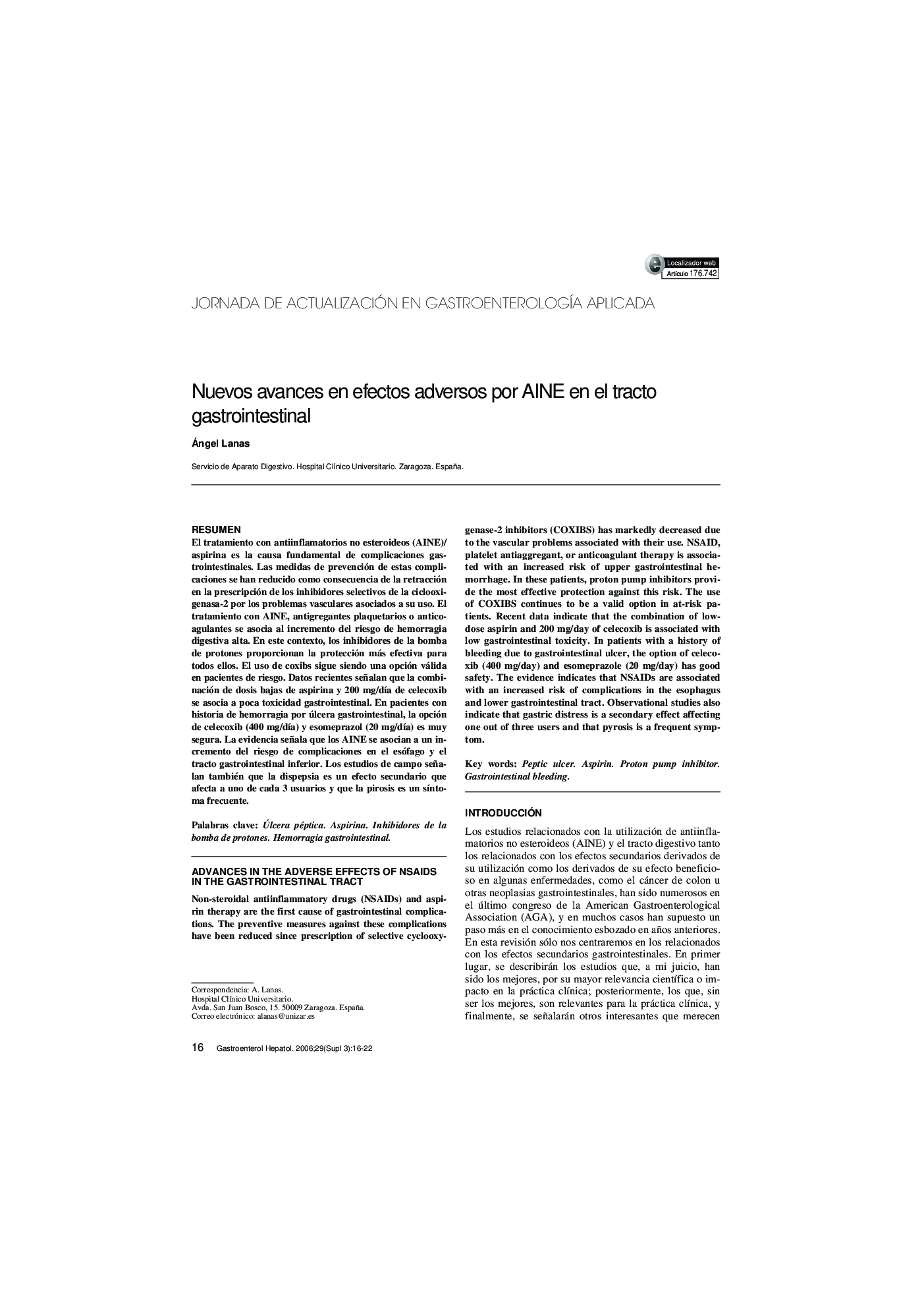| Article ID | Journal | Published Year | Pages | File Type |
|---|---|---|---|---|
| 3289439 | Gastroenterología y Hepatología | 2006 | 7 Pages |
Abstract
Non-steroidal antiinflammatory drugs (NSAIDs) and aspirin therapy are the first cause of gastrointestinal complications. The preventive measures against these complications have been reduced since prescription of selective cyclooxygenase- 2 inhibitors (COXIBS) has markedly decreased due to the vascular problems associated with their use. NSAID, platelet antiaggregant, or anticoagulant therapy is associated with an increased risk of upper gastrointestinal hemorrhage. In these patients, proton pump inhibitors provide the most effective protection against this risk. The use of COXIBS continues to be a valid option in at-risk patients. Recent data indicate that the combination of lowdose aspirin and 200 mg/day of celecoxib is associated with low gastrointestinal toxicity. In patients with a history of bleeding due to gastrointestinal ulcer, the option of celecoxib (400 mg/day) and esomeprazole (20 mg/day) has good safety. The evidence indicates that NSAIDs are associated with an increased risk of complications in the esophagus and lower gastrointestinal tract. Observational studies also indicate that gastric distress is a secondary effect affecting one out of three users and that pyrosis is a frequent symptom.
Keywords
Related Topics
Health Sciences
Medicine and Dentistry
Gastroenterology
Authors
Ángel Lanas,
